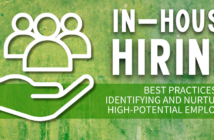Will you remember lessons learned from the pandemic?
To make it through an existential threat like COVID-19, hoteliers need close relationships with business partners and lenders, as well as a digital management system that provides data-driven insights into operations. Those were among the key takeaways from the pandemic for David Duncan, President and Chief Executive Officer of First Hospitality, a Chicago-based hotel investment and management company operating about 50 properties across the country.
Duncan said that prior to the pandemic, his company had consistently returned healthy profits to investors and never defaulted on a loan, and that strong track record earned First Hospitality a little leeway when it needed it most. Partners were more willing to ante up, and lenders were more willing to adjust the terms of loans, he said.
 “Our partners came to the beginning of COVID-19 having had a very positive experience, so if we needed it, they were willing to put in new money and recapitalize things,” Duncan said. “We’ve also never given back a loan, which is somewhat unusual for a company that’s been an investor in so many deals. So, when we needed help from our lenders, such as forbearance agreements, loan extensions, or modifications, they really gave us the benefit of the doubt because we’d always been such a good borrower.
“Our partners came to the beginning of COVID-19 having had a very positive experience, so if we needed it, they were willing to put in new money and recapitalize things,” Duncan said. “We’ve also never given back a loan, which is somewhat unusual for a company that’s been an investor in so many deals. So, when we needed help from our lenders, such as forbearance agreements, loan extensions, or modifications, they really gave us the benefit of the doubt because we’d always been such a good borrower.
“Where that really helped us a lot was allowing us to extend mortgage loans, whereas folks who didn’t have the benefit of that background were put on a much shorter leash.”
Duncan said the pandemic arrived after First Hospitality had spent two years upgrading its digital infrastructure, including its revenue-management and business-intelligence systems, and that investment paid dividends. When business slowed down, the digital technology allowed the company to quickly evaluate the potential impact of renting out large blocks of rooms to government agencies and first responders at discounted rates for 30, 60, or 90 days at a time.
“That’s an interesting idea, but you always have to compare it to what the alternatives are, and because we had a pretty sophisticated revenue-management system, we were able to quickly find out what those new contracts would do in terms of displacing revenue,” Duncan said.
 More recently, the business analytics have given First Hospitality the confidence to rehire much of its salesforce sooner than its competitors, Duncan said. Forward-booking data and other indicators suggested travelers would return to the company’s hotels in three separate waves – transient visitors, business travelers and group business travelers – and bringing sales representatives back into the fold is key to capturing that second consumer segment, he said.
More recently, the business analytics have given First Hospitality the confidence to rehire much of its salesforce sooner than its competitors, Duncan said. Forward-booking data and other indicators suggested travelers would return to the company’s hotels in three separate waves – transient visitors, business travelers and group business travelers – and bringing sales representatives back into the fold is key to capturing that second consumer segment, he said.
“The majority of our competitors have eliminated their salesforces and are slow to bring them back,” Duncan said. “What we realized is that the opportunity to gain market share in business travel is right now. You can’t wait three-to-six months for it to be here. Now is when you have to find those customers and bring them to your hotels.”
And First Hospitality is betting on a near-future return of business travel. “We immediately started doubling down on hiring salespeople,” Duncan said. “Business travel will come back slowly, but it doesn’t need to come back that slowly to our hotels if we can capture a greater share. Capturing those various insights is what we built this revenue-management system for.”
 An ounce of prevention…
An ounce of prevention…
No one can be sure when the next downturn will occur or what will cause it, but there are steps hoteliers can take now to better position themselves for it. Here’s some advice from industry experts.
Step up your training regimen. As guidance from health officials changed throughout the pandemic, hotels had to adapt their safety and sanitization protocols quickly, and that experience should serve them well if another health emergency or natural disaster occurs. Going forward, hoteliers should conduct quarterly or semiannual training sessions so employees remain familiar with emergency-response plans, said John Welty, President of SUITELIFE Underwriting Managers, which administers insurance programs to luxury hotels and resorts.
In addition, hoteliers should take advantage of risk-management educational resources provided by many insurers, he said.
“I think a lot of hotels have learned from the pandemic and now are more proactive in their approaches to things like a pandemic or a natural disaster,” Welty said.
 At the 2021 Today’s Hotelier Roundtable, cross-training employees to serve multiple job functions was a hot topic. As many hotels operated with skeleton staffs during the pandemic, employees with broad skillsets became more valuable than ever. With business picking up now, some hoteliers may struggle to find the time to cross-train workers, but it’s a necessity that will pay off during the next downturn, said Amman Patidar, whose hotel properties include the Scottish Inn & Suites in Houston.
At the 2021 Today’s Hotelier Roundtable, cross-training employees to serve multiple job functions was a hot topic. As many hotels operated with skeleton staffs during the pandemic, employees with broad skillsets became more valuable than ever. With business picking up now, some hoteliers may struggle to find the time to cross-train workers, but it’s a necessity that will pay off during the next downturn, said Amman Patidar, whose hotel properties include the Scottish Inn & Suites in Houston.
All employees should get periodic cross-training to ensure they can perform the basic tasks of customer service and hotel management in a pinch, including general managers and hoteliers themselves, Patidar said.
“Employees such as maintenance workers are hard to come across, so I’m doing a lot of that myself,” he said. “My GMs are on board, and my desk clerks are performing duties that they’ve never done in the past. And owners were working shifts themselves, answering phone calls and doing things we haven’t done in years.
“Some hoteliers actually don’t know much about operations, maintenance, and housekeeping. They’ve never really done that hands-on labor, so they really don’t understand it, but you have to able to help out in any way you can.”
Establish an emergency fund. Hotels digging out from the pandemic might not be able to save money just yet, but it should be a major long-term priority, according to Welty.
Welty noted that financial advisers often tell clients to have at least three months of expenses set aside for emergencies. While that wouldn’t have been enough to get hotels through the pandemic, it could have softened the blow, he said.
“I think hotels have seen the value of having a very similar strategy, of having those financial resources in place,” Welty said.
Patidar said some of his hotels entered the pandemic without a rainy-day fund, while others had $50,000 to $100,000 in reserves. Partners in the some of the properties lacking emergency funds had to inject capital on several occasions to maintain operations. But at the properties with emergency funds, “it was easier for us to maintain day-to-day operations without hunting for money,” he said.
Patidar recommended that hoteliers gradually build a reserve fund with six months of expenses, including their mortgage payments.
“If you need $20,000, you don’t want to have to ask four different partners to deposit $5,000 each,” Patidar said. “Nobody likes to put in money, ever. Once that business is open and running, everyone wants distribution, and that’s all they want. So, at least if you have these funds set aside, you’ll always be able to distribute something on a quarterly basis.”
Reward your most loyal employees. Patidar said when the pandemic forced him to lay off managers and staff, he allowed many of them to live in their hotels for an additional month or more, and many continued performing some work duties despite not being paid.
As hotels return to profitability, hoteliers should do what they can to reward their most skilled and reliable workers, especially in light of the difficulty many hotels are having attracting enough employees, Patidar said.
“The employees that stuck around during these hard times are the ones in it for the long haul,” he said. “Treat them the way you would want to be treated.”
Consider diversifying your portfolio. Hoteliers looking to expand their portfolios may be tempted to stick with what they know best, but pigeonholing yourself into one market segment is risky.
Jill Atfield, Owner and Manager of Highland Hills Cabins, a Master Hosts Resort in Boone, N.C., said her property enjoyed a record year in 2020, proving that no downturn affects all industry segments in precisely the same way. Her 35-unit property, nestled in the Blue Ridge Mountains near Appalachian State University, has multiple types of rentals, from motel rooms to log cabins, that can accommodate six to 10 people.
Since her cabins have full kitchens and separate entrances, business remained brisk last year. Families that didn’t want to fly but needed to escape their homes flocked to the property, and with construction projects at the university continuing uninterrupted, laborers provided a steady income stream.
“We wound up being lucky up here,” Atfield said. “People still wanted to come up here because it’s something different. We had a waiting list of people wanting to rent rooms with a kitchen.”
If the next economic downturn includes spiking gas prices, destination properties such as Atfield’s may not fare as well as other industry segments. But developing a diverse portfolio of properties can serve as a hedge against that unpredictability.
“It makes sense not to have all of your eggs in one basket,” Atfield said.




